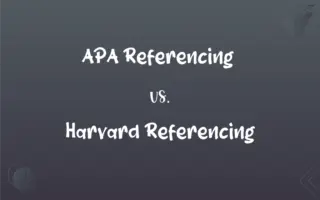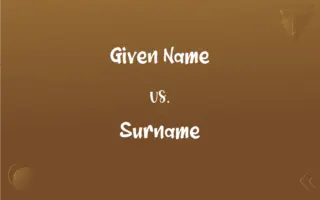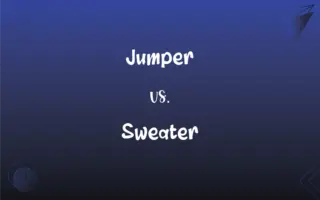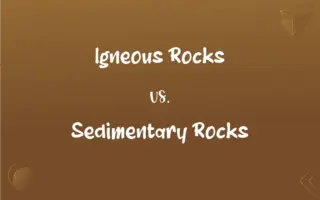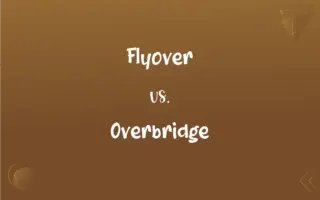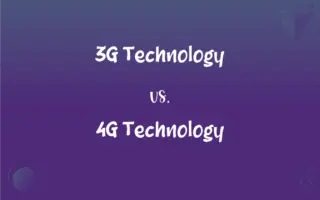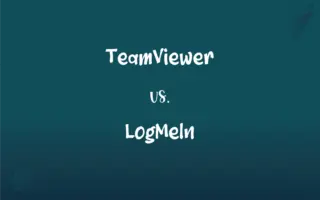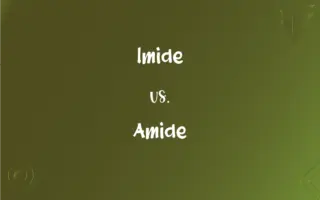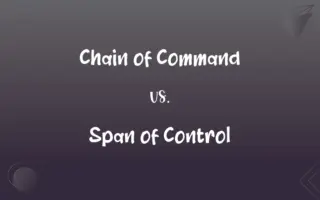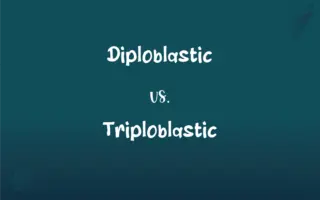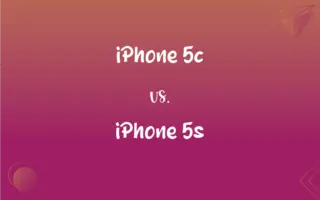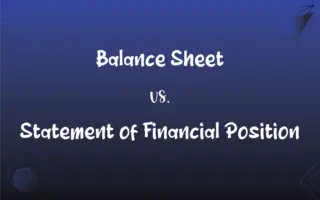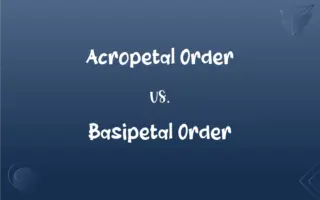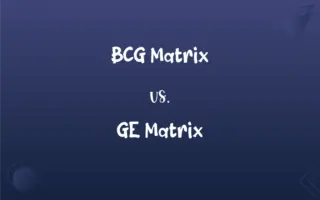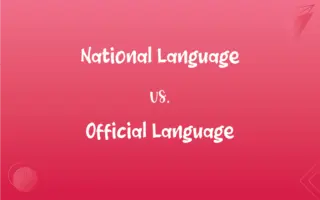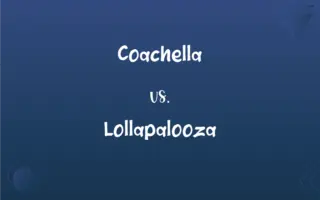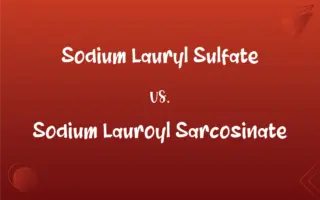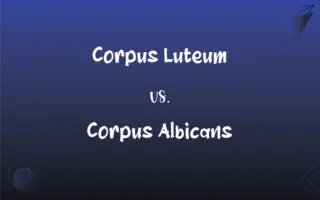Confusion vs. Diffusion: What's the Difference?
Edited by Aimie Carlson || By Janet White || Published on February 2, 2024
Confusion is a state of being perplexed or unclear, while diffusion is the process of spreading something more widely.

Key Differences
Confusion refers to a lack of understanding or clarity, often leading to errors or indecision. It's a mental state where things are mixed up or hard to comprehend. Diffusion, in contrast, is a physical process where particles or ideas spread from areas of high concentration to low concentration, like a fragrance dispersing in a room.
In the realm of psychology, confusion is a cognitive state where one cannot think clearly or make rational decisions. It often arises from complex or conflicting information. Diffusion, in social sciences, refers to the spread of cultural elements, ideas, or technologies from one group or place to another.
In technology, confusion can happen when user interfaces are not intuitive, leading to mistakes or frustration. On the other hand, diffusion in technology speaks to how innovations or new technologies spread through a population or society.
Confusion often requires clarification or additional information to resolve, while diffusion is a natural process that occurs over time, often without direct intervention. Both concepts, though different in nature, are vital in understanding human behavior and natural phenomena.
In everyday language, confusion is used to describe situations of misunderstanding or disarray. For example, a confusing set of directions can lead someone astray. Diffusion, however, is often used in scientific contexts, like explaining how a gas diffuses in the air.
ADVERTISEMENT
Comparison Chart
Definition
Mental state of being unclear
Process of spreading widely
Context of Use
Psychological, everyday
Scientific, social sciences
Outcome
Misunderstanding, errors
Spread of particles or ideas
Requirement for Resolution
Clarification, information
Natural process over time
Example
Confusing instructions
Diffusion of a fragrance
ADVERTISEMENT
Confusion and Diffusion Definitions
Confusion
Confusion is a state of being bewildered or unclear.
The complex math problem caused confusion among the students.
Diffusion
Diffusion refers to the movement from high to low concentration.
The diffusion of perfume in the room made it fragrant.
Confusion
Confusion arises when there's a misunderstanding.
His ambiguous instructions led to confusion.
Diffusion
Diffusion is the spreading of something more widely.
The diffusion of sunlight through the clouds was beautiful.
Confusion
Confusion can indicate a disorderly or chaotic state.
The sudden alarm caused confusion in the office.
Diffusion
Diffusion in technology means the spread of innovations.
The diffusion of smartphones has changed communication.
Confusion
Confusion is a mix-up of ideas or facts.
There was confusion about the meeting's time and place.
Diffusion
Diffusion is the gradual spread of cultural elements.
The diffusion of cuisine across continents enriches food culture.
Confusion
Confusion manifests as a difficulty in understanding.
The foreign language lecture left her in confusion.
Diffusion
Diffusion can describe the dissemination of information.
The diffusion of news on social media is rapid.
Confusion
The act of confusing or the state of being confused
Backstage confusion made the rehearsal difficult.
Diffusion
The process of diffusing or the condition of being diffused
The diffusion of new technology around the world.
FAQs
Is confusion a normal emotional response?
Yes, it's a common response to unclear or complex situations.
How can confusion be resolved?
Through clear communication and seeking additional information.
Can confusion be a symptom of a disorder?
Yes, it can be a symptom of neurological or psychological disorders.
What is diffusion in simple terms?
Diffusion is the process of spreading substances or ideas across an area.
What causes confusion in communication?
Ambiguity or lack of clarity in messages leads to confusion.
Can confusion affect decision-making?
Yes, confusion can impair one's ability to make clear decisions.
Can confusion lead to creativity?
Yes, it can sometimes lead to new insights and creative solutions.
Can diffusion happen with information?
Yes, ideas and information can diffuse through societies or groups.
How does diffusion relate to culture?
It describes how cultural elements spread and mix across societies.
Does confusion always require intervention?
Not always, sometimes it resolves with time and context.
How does diffusion occur in liquids?
Particles move from areas of high concentration to low concentration.
Is diffusion a quick process?
It can vary, sometimes occurring rapidly, other times slowly.
Does diffusion require energy?
In biological systems, passive diffusion does not require energy.
Does diffusion always lead to equilibrium?
In closed systems, it often leads to an equilibrium state.
Is diffusion important in biology?
Yes, it's crucial for processes like oxygen transport in the body.
Is confusion different from misunderstanding?
They're related, but confusion is more about a state of mind.
Can children experience confusion?
Yes, children often experience confusion while learning new concepts.
How does diffusion impact ecosystems?
It affects the distribution of nutrients and organisms in ecosystems.
Can diffusion occur in gases?
Yes, it's a common process in gases, like the dispersal of odors.
Can diffusion be controlled or directed?
In some cases, like with technology, it can be influenced by external factors.
About Author
Written by
Janet WhiteJanet White has been an esteemed writer and blogger for Difference Wiki. Holding a Master's degree in Science and Medical Journalism from the prestigious Boston University, she has consistently demonstrated her expertise and passion for her field. When she's not immersed in her work, Janet relishes her time exercising, delving into a good book, and cherishing moments with friends and family.
Edited by
Aimie CarlsonAimie Carlson, holding a master's degree in English literature, is a fervent English language enthusiast. She lends her writing talents to Difference Wiki, a prominent website that specializes in comparisons, offering readers insightful analyses that both captivate and inform.

